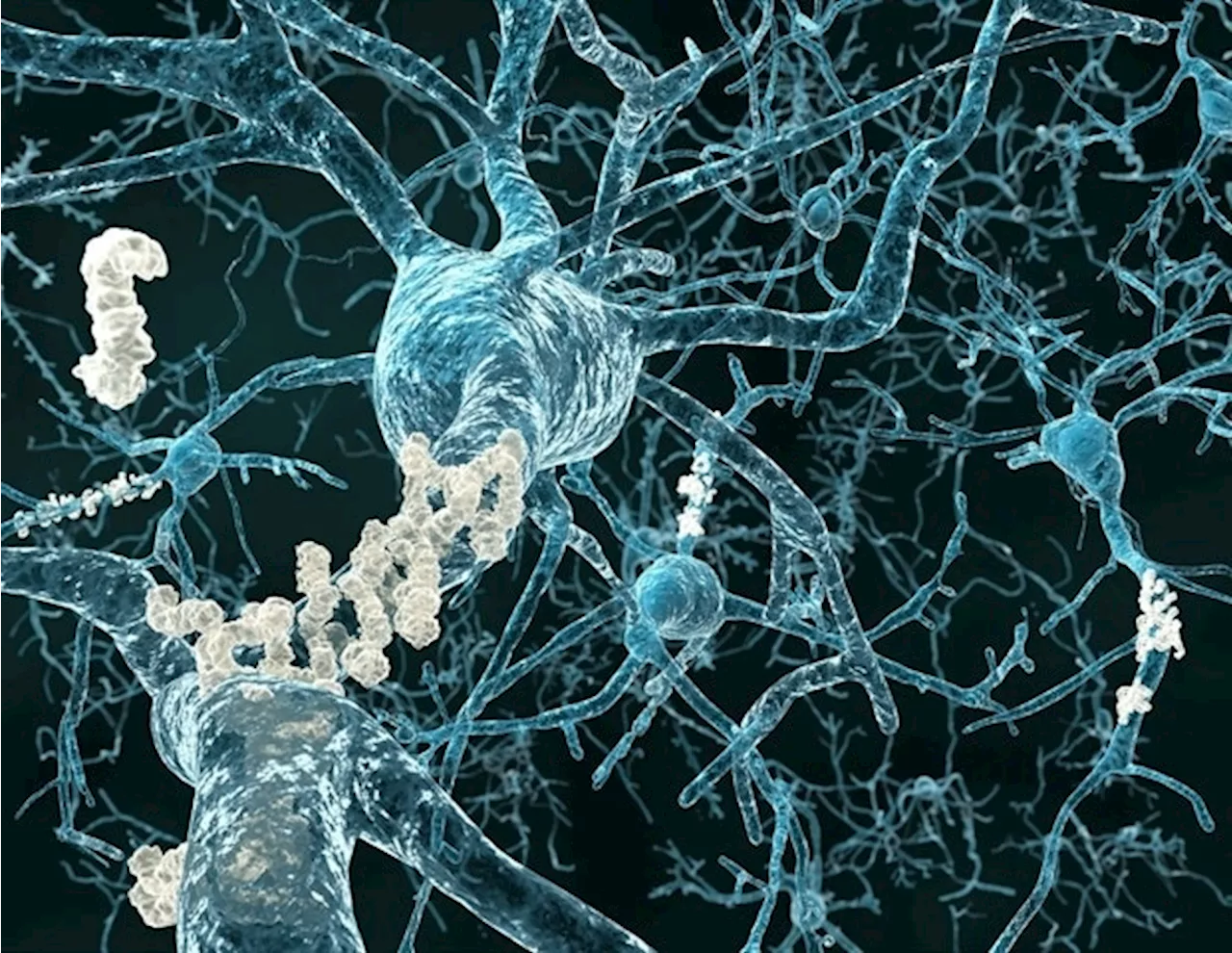New research has shed light on the complex interplay between cell proteins, and how they impact on neurons in neurodevelopmental disorders and Alzheimer's disease.
May 15 2024University of Exeter New research has shed light on the complex interplay between cell proteins, and how they impact on neurons in neurodevelopmental disorders and Alzheimer's disease.
The researchers began studying CNTN4 because it was known to have a role in autism, but its functional roles were not well understood. The team explored how CNTN4 functions within the brain, particularly its interactions with proteins involved in neurodegenerative diseases like Alzheimer's disease. Researchers have demonstrated for the first time in human cells the interaction between genes CNTN4 and APP, a gene strongly linked to Alzheimer's disease, revealing a co-dependent relationship that is essential for brain development, and specifically for the healthy growth of neurons. They found that CNTN4 not only contributes to neural elongation in the frontal cortex region of the brain, but also CNTN4 expression is regulated via a relationship with APP.
The study's lead author, Dr Rosemary Bamford, of the University of Exeter Medical School, said: "It was quite remarkable to discover that CNTN4, a gene linked to developmental processes, also plays a role in modulating factors involved in Alzheimer's disease. This intersection of developmental and neurodegenerative pathways offers exciting new insights into the broader implications of these proteins.
Alzheimer's Disease Autism Brain Cell Cortex Gene Medical School Neurons Protein
United Kingdom Latest News, United Kingdom Headlines
Similar News:You can also read news stories similar to this one that we have collected from other news sources.
 Large-scale study identifies new approach to early Alzheimer's detectionDigital memory test and a blood sample - this combination will be tested for its potential to identify early Alzheimer's disease in a new research study. Over a hundred healthcare centers are part of the study that is now inviting participants to sign up. At least 3,000, preferably many more participants are needed for the study to be successful.
Large-scale study identifies new approach to early Alzheimer's detectionDigital memory test and a blood sample - this combination will be tested for its potential to identify early Alzheimer's disease in a new research study. Over a hundred healthcare centers are part of the study that is now inviting participants to sign up. At least 3,000, preferably many more participants are needed for the study to be successful.
Read more »
 New study reveals potential cellular mechanism behind cognitive decline in Alzheimer'sResearchers have developed a robust method for identifying rare brain neurons that re-enter the cell cycle, offering insights into their role in cognitive disorders such as Alzheimer's disease.
New study reveals potential cellular mechanism behind cognitive decline in Alzheimer'sResearchers have developed a robust method for identifying rare brain neurons that re-enter the cell cycle, offering insights into their role in cognitive disorders such as Alzheimer's disease.
Read more »
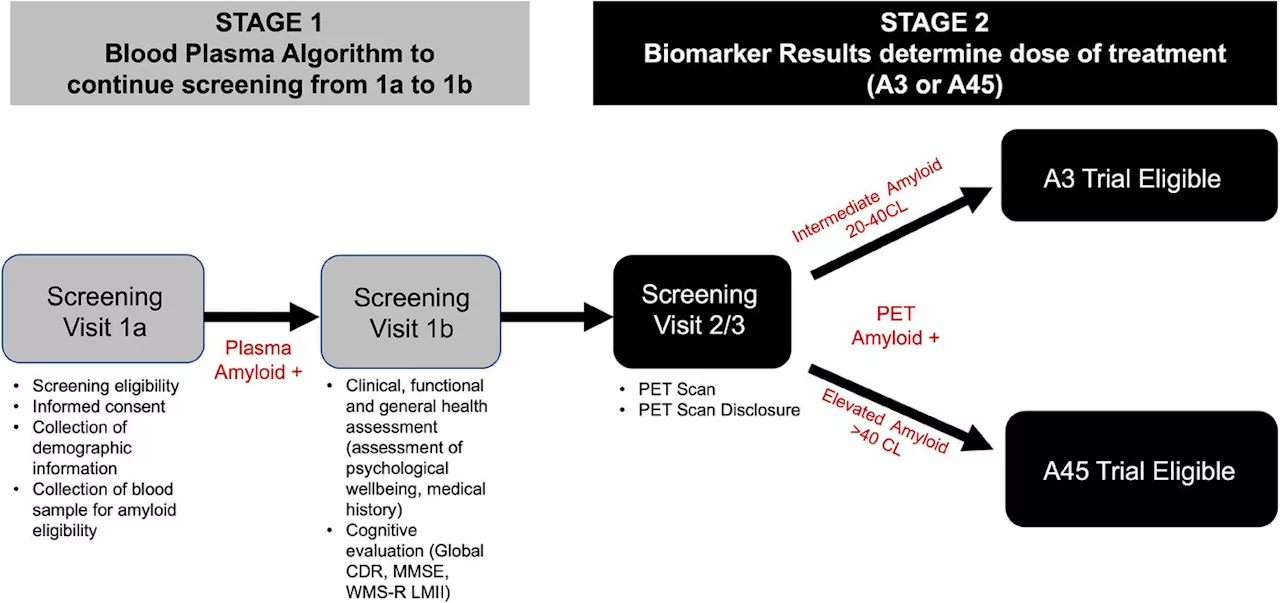 Study links lack of diversity in Alzheimer's disease clinical trials to differences in amyloid levelsIt's long been recognized that some of the groups most likely to get dementia, including African Americans and Hispanics, are greatly underrepresented in clinical trials.
Study links lack of diversity in Alzheimer's disease clinical trials to differences in amyloid levelsIt's long been recognized that some of the groups most likely to get dementia, including African Americans and Hispanics, are greatly underrepresented in clinical trials.
Read more »
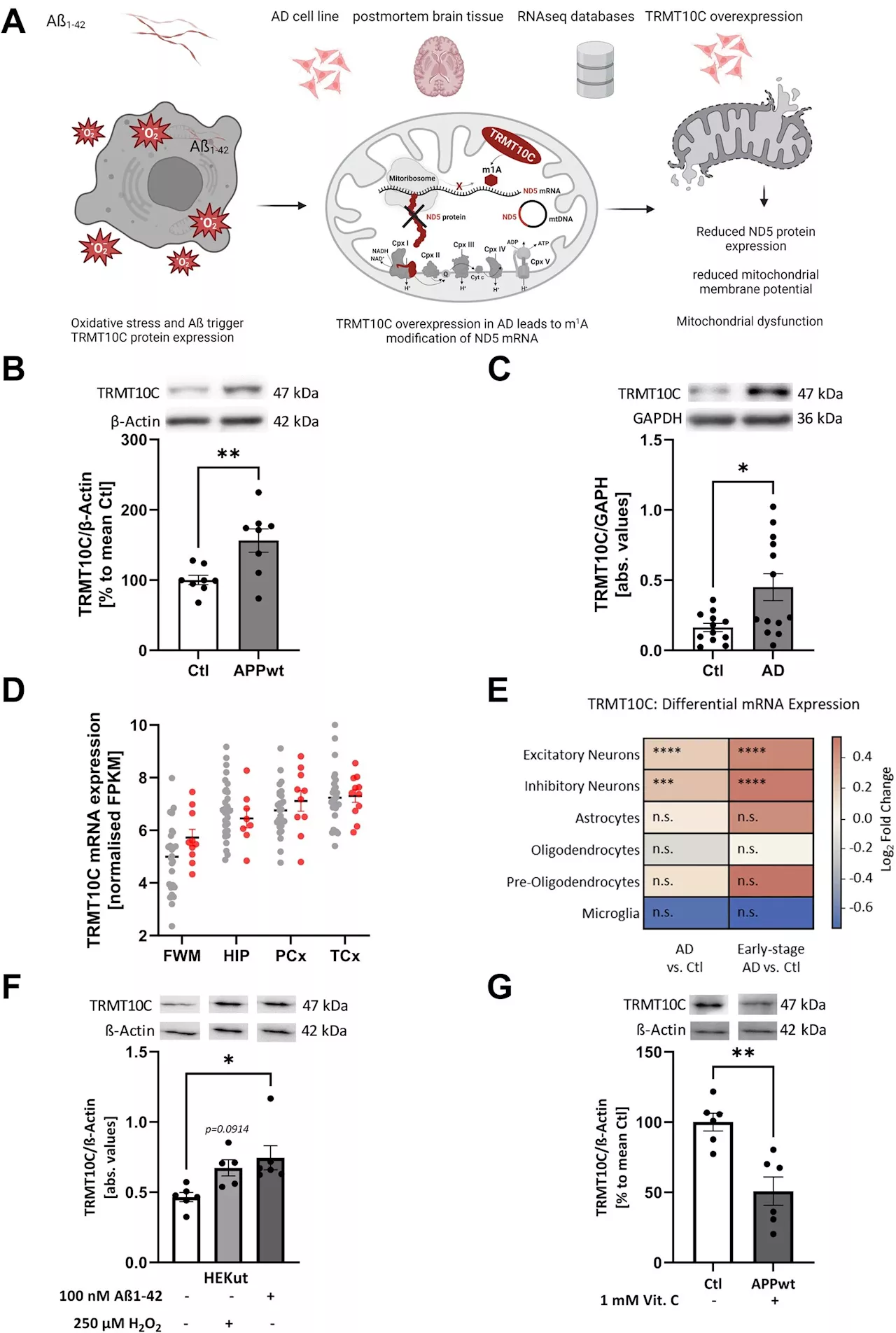 Study finds RNA modification is responsible for disruption of mitochondrial protein synthesis in Alzheimer's diseaseA team of researchers at Johannes Gutenberg University Mainz (JGU) has identified a mechanism that causes mitochondrial dysfunction in Alzheimer's patients resulting in a reduction of the supply of energy to the brain.
Study finds RNA modification is responsible for disruption of mitochondrial protein synthesis in Alzheimer's diseaseA team of researchers at Johannes Gutenberg University Mainz (JGU) has identified a mechanism that causes mitochondrial dysfunction in Alzheimer's patients resulting in a reduction of the supply of energy to the brain.
Read more »
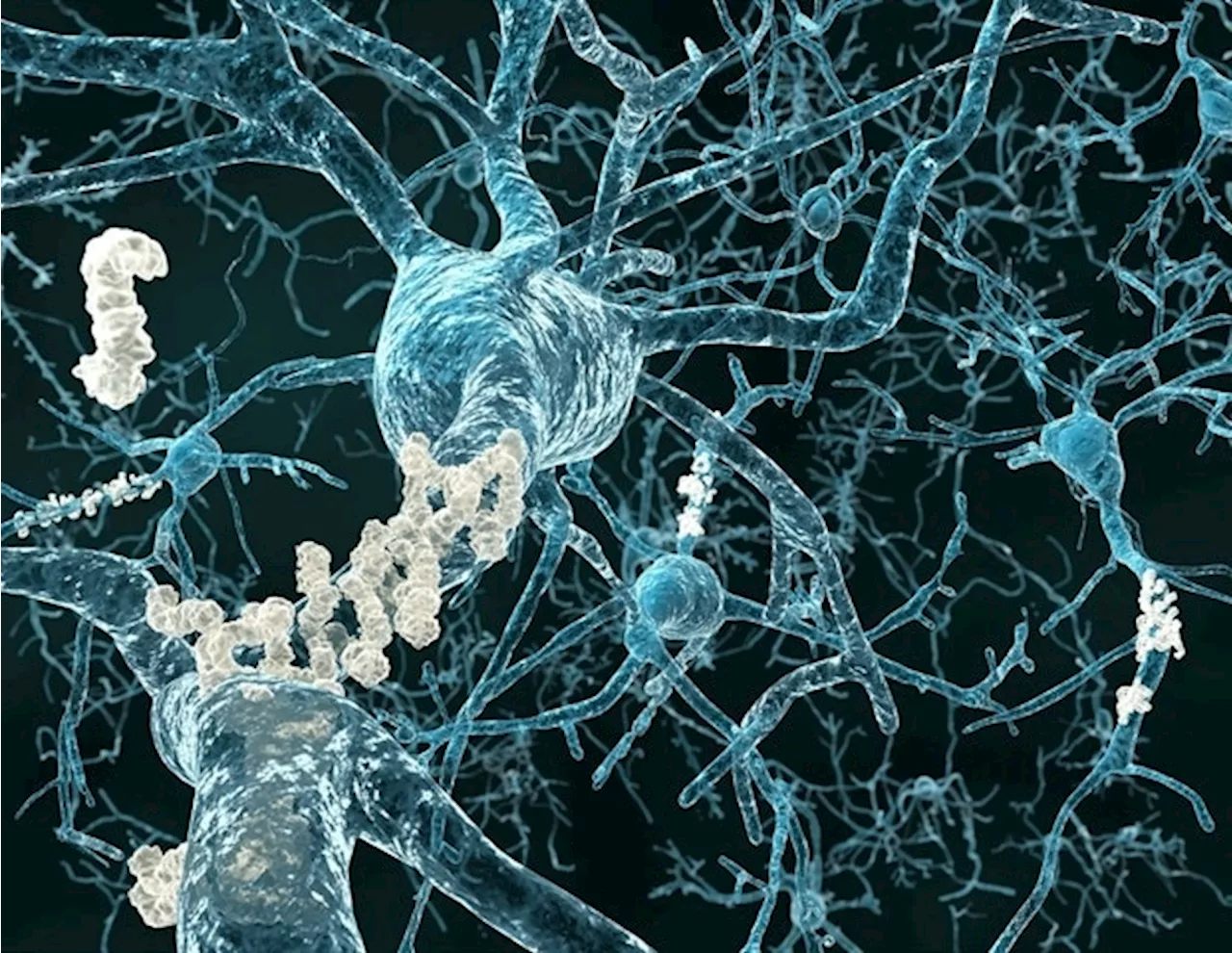 Study identifies APOE4 homozygotes as high-risk group for Alzheimer's diseaseResearchers from the Research Area on Neurological Diseases, Neuroscience, and Mental Health at the Sant Pau Research Institute, led by Dr.
Study identifies APOE4 homozygotes as high-risk group for Alzheimer's diseaseResearchers from the Research Area on Neurological Diseases, Neuroscience, and Mental Health at the Sant Pau Research Institute, led by Dr.
Read more »
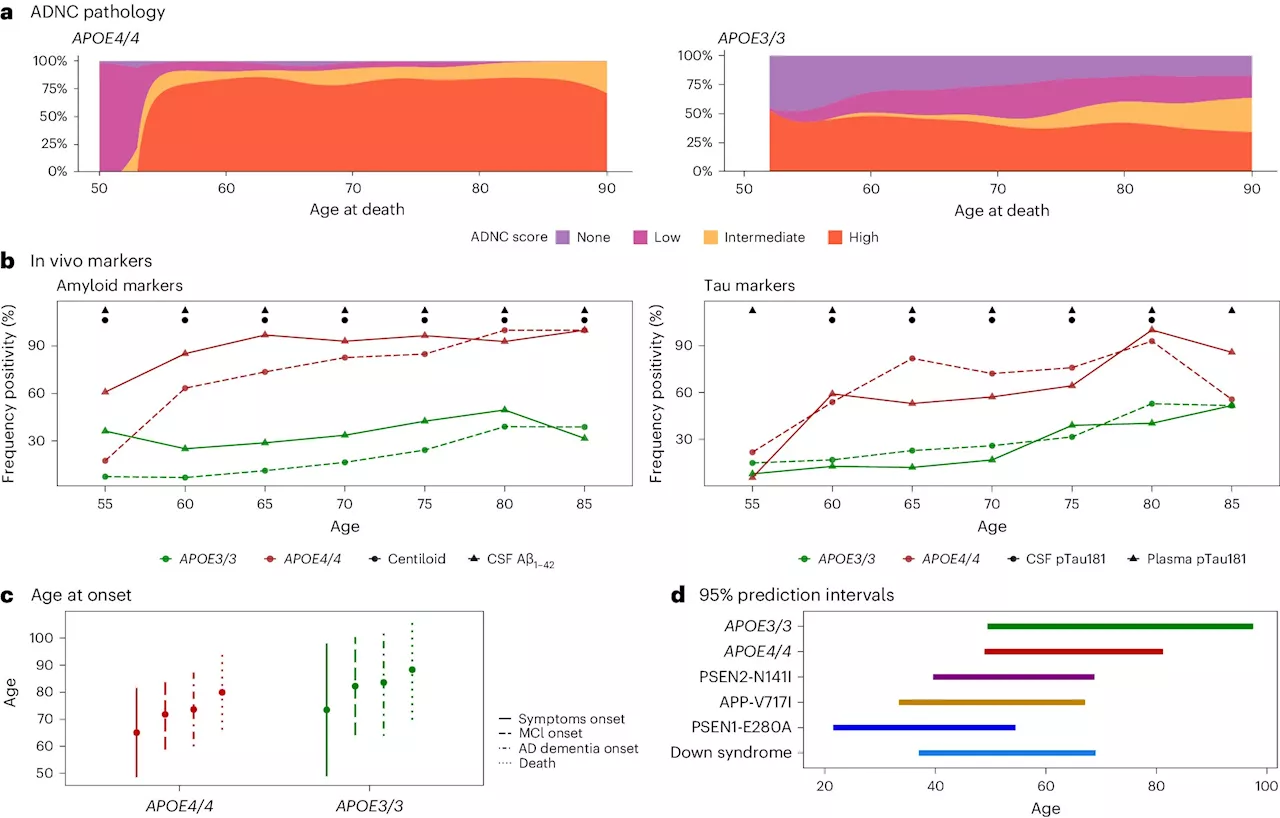 Study suggests two copies of APOE4 gene behind up to 20% of Alzheimer's casesA team of neurologists affiliated with multiple institutions in Spain and the U.S. has found evidence that suggests up to 20% of all cases of Alzheimer's disease (AD) may be attributable to double copies of the APOE4 gene.
Study suggests two copies of APOE4 gene behind up to 20% of Alzheimer's casesA team of neurologists affiliated with multiple institutions in Spain and the U.S. has found evidence that suggests up to 20% of all cases of Alzheimer's disease (AD) may be attributable to double copies of the APOE4 gene.
Read more »
